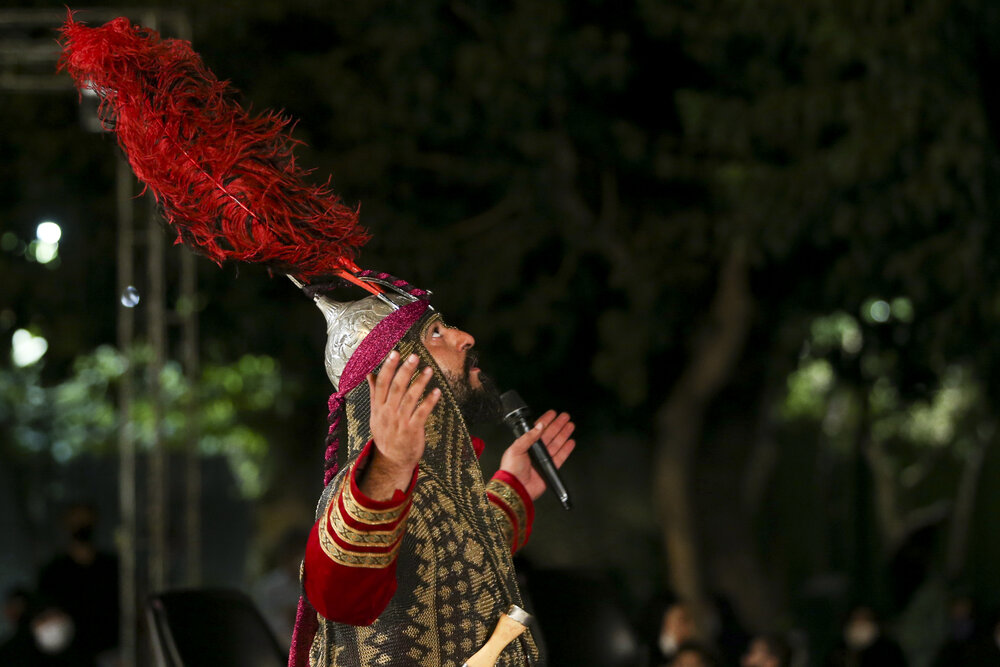Rudaki Open-Air Theater hosts tazieh performances

TEHRAN – Tehran’s Rudaki Open-Air Theater is playing host to performances of tazieh, Iranian passion play, during the first ten days of the lunar month of Muharram.
The Seyyed ush-Shohada Tazieh Group directed by Ahmad Azizi performed “Shah Cheragh (AS) Tazieh” on the first night on Tuesday.
The tazieh is about the martyrdom of Hazrat Ahmad ibn Musa (AS) who, along with his brothers, including Seyyed Alaeddin Hossein (AS), embarks on a journey to visit their brother, Imam Reza (AS), in the Khorasan region.
However, Fars ruler Qotlogh Khan is assigned by Abbasid caliph Mamun the task of stopping them. They all are killed in an intense battle with the ruler’s men.
“Hazrat Muslim (AS) Tazieh” was performed on Wednesday night. The tazieh portrays the journey of Muslim ibn Aqil al-Hashimi (AS), the messenger of Imam Hussein (AS), to Kufa a few days before the Ashura uprising that led to the martyrdom of the Imam and his companions in 680.
The story of the martyrdom of Muslim ibn Aqil’s sons, Muhammad and Ibrahim, is scheduled to be staged on Thursday night.
The story of Hurr ibn Riahi, one of Yazid’s commanders, who joined the troops of Imam Hussein (AS) on the eve of Ashura, is another highlight of the tazieh program, which has been organized by the Art and Cultural Organization of the Tehran Municipality.
The tazieh troupe is composed of Masud Azizi, Milad Azizi, Hossein Atiqi, Hossein Nabai, Alireza Seyyed-Salehi, Amirali Rezai, Amir Seyyed-Salehi, Mehdi Aqai, Yasser Babai, Hamid Farrokhi, Ebrahim Khodabandeh, Mohsen Daneshi, Sajjad Khesali and Sajjad Mohammadzedeh.
The Art and Cultural Organization of the Tehran Municipality has also organized troupes to perform over 200 tazieh performances in Tehran parks in a program that started on Tuesday and will run until September 7.
The Iranian passion play tazieh was registered on the UNESCO List of the Intangible Cultural Heritage of Humanity in November 2010.
Tazieh represents religious events, historical and mythical stories and folk tales. Each performance has the four components of poetry, music, song and motion.
However, stories about the uprising of Imam Hussein (AS) and his companions against the oppressive Umayyad dynasty in 680 CE are more highly regarded by tazieh troupes and audiences.
Performers are always male, and female roles are played by men, most of whom are amateurs who gain their living through other means but perform for spiritual rewards.
Photo: A thespian acts in tazieh performance at the Rudaki Open-Air Theater in Tehran on August 28, 2020. (IRNA/Amin Jalali)
MMS/YAW
